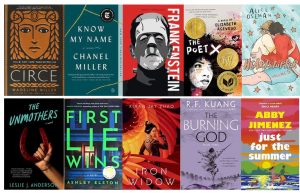As you have surely heard by now, on Saturday morning, Rep. Gabrielle Giffords (D-Ariz.) was shot in the head at a meeting with her constituents outside Tuscon. In addition to the congresswoman’s injuries, six others were shot and killed, ranging from a federal judge to a nine-year-old girl. A dozen more were injured.
There may not be a better reminder that there are still terrible things happening in our country or that when such an attack occurs, it affects everyone. Violence is not discriminatory.
Critics and analysts have been all over the attack. Fingers have been pointed every way possible. Many believe the attack was rooted in political ideology, and the backlash from that idea chalks a dark underscore of today’s political arena. Others are quick to point out that we still are not sure what prompted the attacks, as we may never know. Whatever the case, the facts remain simple: one man with a gun opened fire on a crowd, killing six and injuring others. The scene of a political meeting only draws more attention to some of the issues revealed by such killings.
In an address of the political landscape, for years now Arizona has been a literal hot-bed for very conservative Republicans who continually escalate the amount of hateful and exclusivist rhetoric used to inspire voters, where more moderate politicians have been forced to retreat in face of more aggressive personalities.
It has been pointed to as a very us-versus-them style of law- and speech-making, fueled by concerns over illegal immigration, that has been spreading throughout the political landscape to become a more accepted means of “debate.”
Sarah Palin recently drew flak for making a map of the United States with what appear similar to gun sights targeted on 20 congressional districts held by Democrats with the slogan “We’ve diagnosed the problem…help us prescribe the solution.” Sadly, when the map was first published last year, Giffords, whose seat is in one of the targeted districts, commented that “when people do that, there are consequences to that action.”
Many are quick (and right) to point out that Palin’s actions are not necessarily linked to the shooting, but what can appear to be an assassination attempt should remind us that for the words we speak or the images we post, there can be a reaction or consequence that we did not intend. The larger issue at hand surrounding this shooting is that for all our outward problems and victories, as the “land of the free,” we have dropped an awful long way to slander, insult, accuse and target fellow countrymen. Hateful and vitriolic speech is becoming all too popular in today’s political scene, and even outside the political realm.
A friend of mine said it best, writing “We ought to remember that we’re all human beings and should conduct political discussion with this at the front of our minds. That’s not to say that we shouldn’t disagree or be passionate, but we have to consider the language we use and the implications we make… I doubt that the shooter would’ve benefited from this sort of argument, but maybe if we as a society are a little less careless about what exactly we’re saying and how we say it, we can create an environment less conducive to this sort of violence.”
John Loredo, a former Arizona state legislator also commented that “nobody is surprised at this. That has been the tone and rhetoric that has been used for some time, and this is the only place it could have led to.”
What has taken place is a tragedy, with no clear objective or cause. At the very best we can take a lesson from these murders and realize that what we say has meaning, and that all the hate we throw at each other has an impact.




Be First to Comment